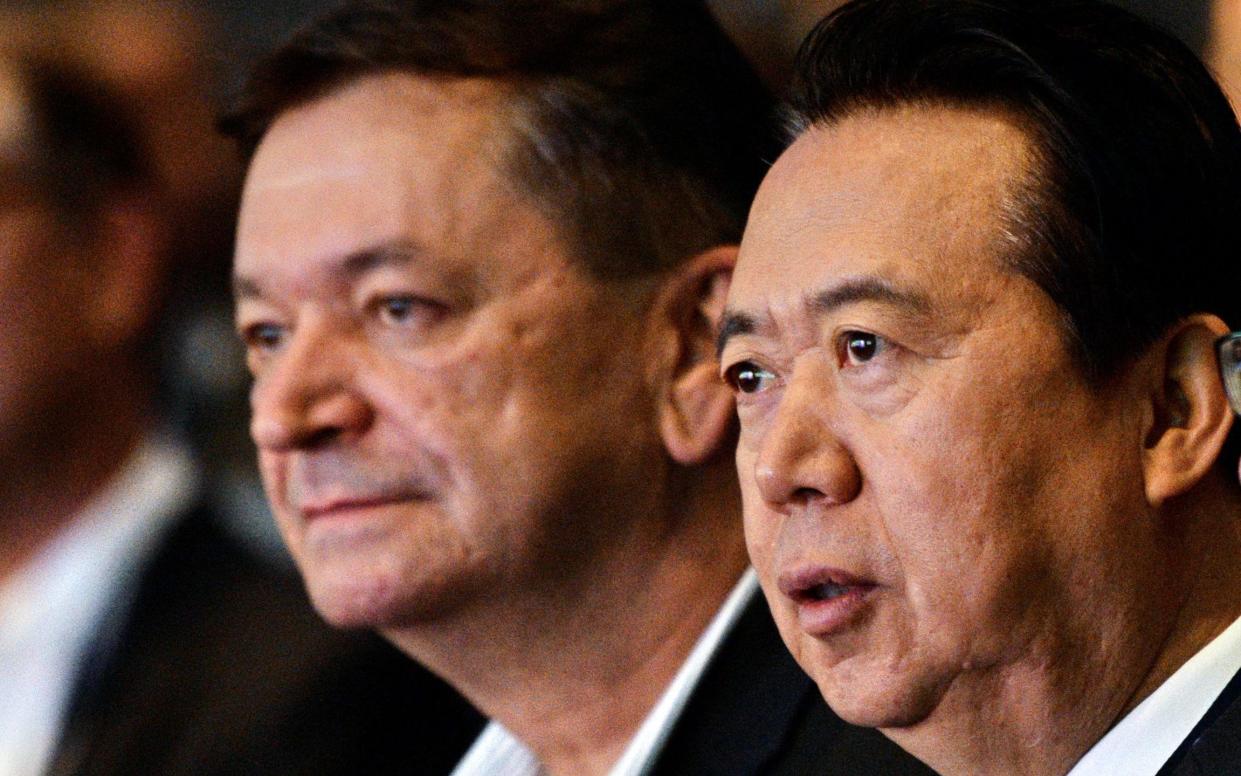Russian candidate for Interpol presidency defeated after intense lobbying from Western allies

Interpol announced Wednesday that Kim Jong-yang of South Korea had been chosen as its new president, beating a Russian official whose candidacy had unnerved Western nations.
The US-backed Kim, acting president of the global police body, was picked at a meeting of delegates from member nations in Dubai to replace Meng Hongwei, who went missing in his native China in September.
Beijing later said Meng resigned after being charged with accepting bribes.
There had been growing calls within Western nations for Interpol to reject Russian candidate Alexander Prokopchuk - a Russian interior ministry official and current Interpol vice president - over fears Moscow could abuse the role to target political opponents.
On Tuesday, US Secretary of State Mike Pompeo threw his weight behind Kim, who will serve out Meng's term until 2020.
"We encourage all nations and organisations that are part of Interpol and that respect the rule of law to choose a leader with integrity. We believe Mr. Kim will be just that," Pompeo told reporters.
Foreign Office minister Harriett Baldwin told Parliament on Tuesday that the Government would support Kim's bid.
Critics have raised concerns over Russia's previous applications for Interpol "Red Notices", or international arrest warrants, to target those who have fallen foul of the Kremlin.
Interpol's president chairs its General Assembly while day-to-day operations are handled by the organisation's Secretary general Juergen Stock.
In an open letter this week, a bipartisan group of US senators said choosing Prokopchuk would be like "putting a fox in charge of a henhouse".
"Russia routinely abuses Interpol for the purpose of settling scores and harassing political opponents, dissidents and journalists," they wrote.
The controversy also comes amid security concerns over the Salisbury nerve agent poisonings and Russia's subsequent attempt to hack the network of the global chemical weapons watchdog.
Ukraine, deeply at odds with Moscow over its annexation of Crimea and support for separatists, threatened to pull out of Interpol if Prokopchuk prevailed. Lithuania also said it would consider withdrawing from the network.
Russian presidential spokesman Dmitry Peskov dismissed the US senators' letter as a "vivid example" of an attempt to interfere in the vote. Moscow's interior ministry denounced a "foreign media campaign aimed at discrediting Russia's candidate".

 Yahoo News
Yahoo News 
